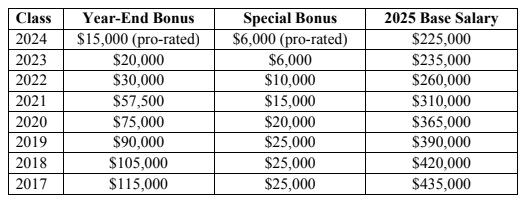Cops
just
seem to love killing
people’s
pets.
While this
act is
often
“justified”
by
(often
ridiculous)
claims
of
“officer
safety,” a
whole
lot
of
killing of
people’s
dogs
seems
to
happen
just
because
law
enforcement
officers
have the
means
and
the
opportunity to
carry
this
act
out.
Nothing
involving
the
killing
of
people’s
dogs
can
be
considered
anomalous.
The
US
Department
of
Justice pointed
this
out
years
ago,
albeit
not
officially.
In
2014,
community-oriented-policing
program
head
Laurel
Matthews
stated
that
cops
are
killing
up
to
30
pets a
day, something
she
referred
to
as
an
“epidemic.”
If
anyone
wants
to
argue
this
estimate
isn’t
accurate,
they’re
free
to
do
so.
But it
isn’t
difficult
to
believe American
law
enforcement
is
capable
of
killing
30
pets
a
day
across
the
nation,
especially
when
there’s
little
reason
for
them not to
shoot
any
animals
they
see
while
inviting
themselves
onto
other
people’s
private
property.
But
most
cops
are
willing
to
limit
themselves
to
one
or
two
killings
per
incident.
Former
Tennessee
law
enforcement
officer
Connor
Brackin,
however,
decided
he
couldn’t
call
an
end
to
this
animal
welfare
visit
until he’d
personally killed all
but
one
the
animals
he
was
supposed
to
be
saving.
(h/t Reason)
Conner
Brackin,
a
24-year-old
police
deputy
with
the
McNairy
County
Sheriff’s
Office,
was arrested
and
charged with
aggravated
animal
cruelty
on
Tuesday
following
an
investigation
by
the
Tennessee
Bureau
of
Investigation.
On
Nov.
4,
Brackin
responded
to
an
“animal
welfare
concern”
in
Bethel
Springs,
a
city
located
around
100
miles
east
of
Memphis.
According
to
the
affidavit,
Brackin
spoke
with
the
person
who
made
the
complaint
about
multiple
dogs
on
the
neighboring
property,
some
in
pens,
some
in
two
different
trailers.
Brackin
released
one
of
the
dogs
from
a
pen
and
then
“loaded
his
service
rifle
and
pistol
and
began
firing
into
the
campers
at
the
dogs.”
He
allegedly
fired
eight
times,
killing
seven
dogs.
That’s
not
insane.
That’s
pyschopathic,
which
is
something
else
altogether.
The
owner
of
the
dogs,
Kevin
Dismuke,
didn’t
know
law
enforcement
was
taking
a
look
at
his
dogs
until after Deputy
Brackin
had
killed
all
but
one
of
them.
He
was
left
to
discover
the
fact
on
his
own
upon
his
return
to
his
trailer,
where
he
was
greeted
by
one
dead
dog
and
then
several
others
in
quick
succession.
The
McNairy
County
Sheriff’s
Office
tried
to
spin
this
a
bit:
The
McNairy
County
Sheriff’s
Office
stated
Brackin
observed
two
dogs
in
“extremely
poor
health”
and
one
was
“already
deceased.”
After
looking
for
the
dogs’
owner,
Brackin
let
a
neighbor
take
one
of
the
dogs
and
said
that
he
had
been
“cleared
to
put
down
the
remaining
animals
safely
by
my
supervisor.”
But
there’s
no
force
behind
these
words,
much
less
any
real
sincerity.
The
Sheriff’s
Office
doesn’t
really
think
Deputy
Brackin’s
actions
were
justified.
Nor
does
it
care
what
the
dogs’
owner
thinks
about
this
impromptu
guns-out
raid
performed
by
the
deputy.
We
already
know
most
law
enforcement
agencies
are
rarely
sincerely
concerned
about
the
misery
their
officers
cause.
But
we
do
know
the
Sheriff’s
Office
didn’t
feel
these
actions
were
justified,
otherwise
it
might
have
stepped
in
to
protect
one
of
its
own before this happened:
On
November
7th,
at
the
request
of
25th
Judicial
District
Attorney
General
Mark
Davidson,
TBI
special
agents
began
investigating
the
incident.
Agents
subsequently
developed
information
that
on
November
4th,
the
McNairy
County
Sheriff’s
Department
received
an
animal
welfare
concern
call.
Deputy
Connor
Brackin
(DOB:
07/26/2000)
responded
to
the
residence
in
the
8300
block
of
SR
199
in
Bethel
Springs,
to
check
the
condition
of
the
dogs.
Bracken
released
one
of
the
dogs
to
the
complainant.
For
reasons
under
investigation,
he
fired
his
duty
weapon,
shooting
and
killing
seven
dogs
on
the
property.
On
Tuesday,
TBI
agents
obtained
warrants
for
Brackin,
charging
him
with
seven
counts
of
Aggravated
Cruelty
to
Animals
and
eight
counts
of
Reckless
Endangerment.
Brackin
turned
himself
in
and
was
booked
into
the
McNairy
County
Jail.
If
the
deputy
felt
his
employer
would
have
his
back,
he
never
would
have
turned
himself
in.
If
the
Sheriff’s
Office
thought
Deputy
Brackin
was
worth
keeping
on
staff,
it
would
have
acted
on
his
behalf.
And
it
certainly
wouldn’t
have
accepted
the
24-year-old
officer’s
resignation
if
it
thought
his
actions
were
justified.
The
now-former
deputy
is
on
his
own.
And,
on
top
of
this, he’s
feeling
the
weight
of
his
(extremely
short)
law
enforcement
past being
brought
to
bear.
[Brackin]
graduated
from
the
training
academy
in
September
2022.
In
less
than
two
years,
his
personnel
file
shows
an
administrative
summons
with
allegations
from
two
different
shootings.
A
statement
from
a
hearing
in
May
2024
says
Brackin
“did
not
shoot
the
subject
and
was
merely
returning
fire
to
the
area
where
he
observed
a
muzzle
flash
and
the
sound
of
gunfire.”
It
was
recommended
he
undergo
remedial
training.
The
second
incident,
less
than
two
months
later,
ended
with
someone
dead.
The
TBI
said
the
local
district
attorney
called
them
in
to
investigate
the
shooting
from
March
2023.
In
May
2024,
the
end
of
Brackin’s
probationary
period,
“Chief
Corley
found
it
was
in
the
best
interest
of
the
community,
the
City
of
Jackson,
and
the
Jackson
Police
Department
to
not
retain
Officer
Brackin
as
a
police
officer.”
Brackin
resigned
a
day
later.
Getting
canned
less
than
two
years
in
means
someone
is
so
bad
at
being
a
cop
even
cop
shops
won’t
stick
out
their
neck
for
him.
Fortunately
for
bad
cops,
there’s always
another
cop
shop willing
to
hire
anyone
to
be
a
cop,
especially
if
they’ve
got
any
amount
of
experience
under
their
belt.
But
two
years
after
this
rescue
from
the
pile
of
law
enforcement
rejects,
Connor
Brackin
is
once
again
jobless.
Unfortunately
for
him,
this
second
separation
from
the
Thin
Blue
Line
was
voluntary
and
comes
coupled
with
multiple
criminal
charges.
Whatever
comes
out
of
this
won’t
keep
Brackin
from
seeking
law
enforcement
options
in
the
future.
But
maybe…
just maybe…
it
will
prevent
law
enforcement
agencies
from
hiring
him.
Mass
Puppycide
Ends
Career
Of
Tennessee
Deputy
Who
Probably
Never
Should
Have
Been
A
Cop
More
Law-Related
Stories
From
Techdirt:
Court
Says
There’s
Nothing
Unconstitutional
About
Warrantless
Seizures,
Searches
Of
An
Immigration
Lawyer’s
Phone
DOJ
Investigation
Proves
That
If
A
PD
Isn’t
Known
For
Its
Constant
Rights
Violations,
It’s
Because
It
Hasn’t
Been
Investigated
Yet
FTC
Joins
CFPB
In
Finally
Taking
Aim
At
Data
Brokers
As
Trumpism
Looms
 Kathryn
Kathryn






 Jordan
Jordan









